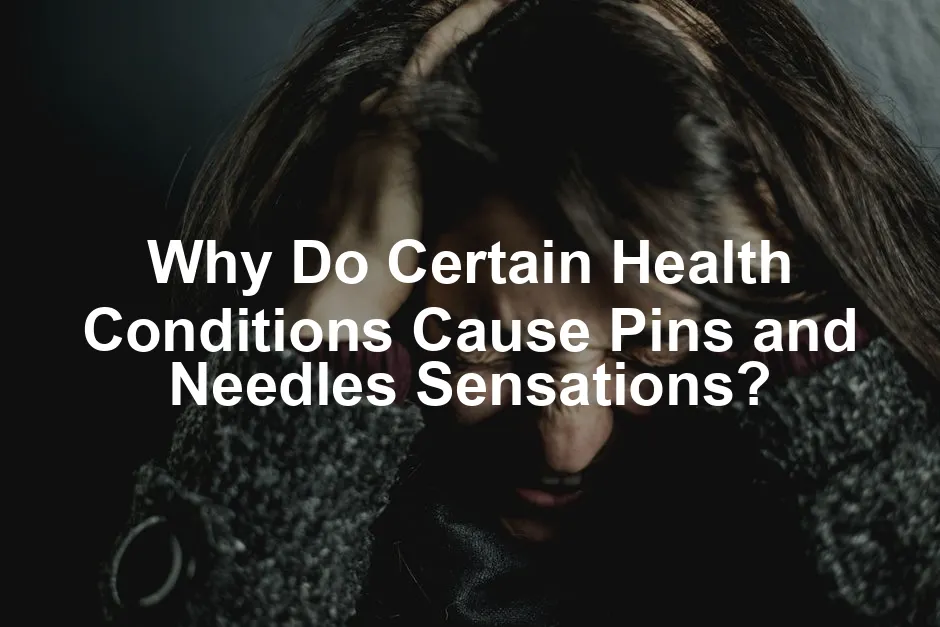
Why Do Certain Health Conditions Cause Pins and Needles Sensations?
Introduction
Have you ever experienced that peculiar tingling sensation known as “pins and needles”? It’s that annoying prickling feeling you get when your foot falls asleep after sitting too long or when you wake up from a nap. While it often resolves quickly, have you ever wondered why certain health conditions can cause these sensations to linger or appear unexpectedly? In this article, we’re diving deep into the science behind paresthesia and its connection to various health issues. Let’s explore the mystery of why your body sometimes sends you a message that feels like a thousand tiny needles!
And speaking of comfort while you work or relax, consider upgrading your workspace with an Ergonomic Office Chair. Not only will it support your back, but it could also help prevent those pesky pins and needles from sitting awkwardly!
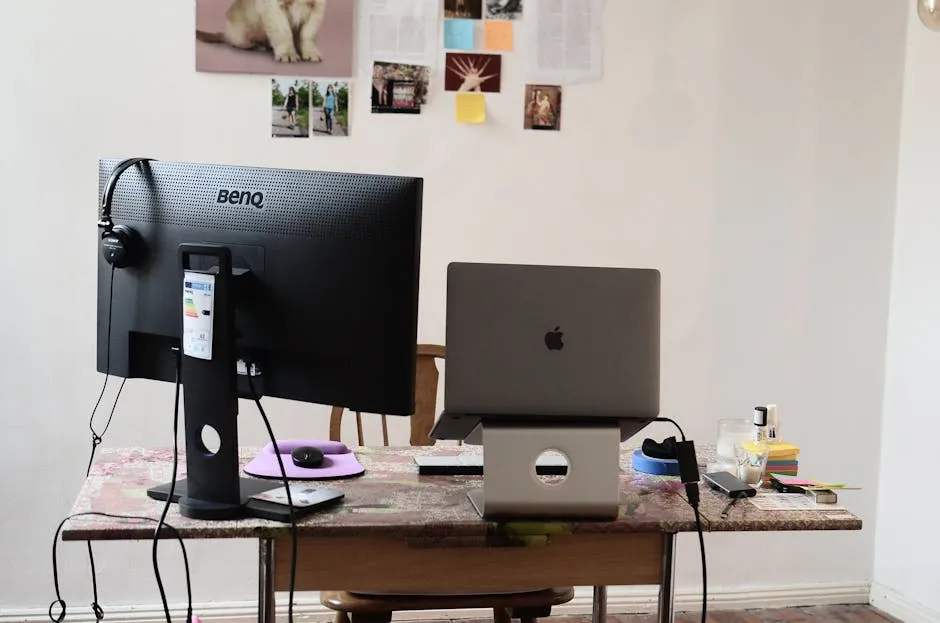
What Are Pins and Needles?
Definition of Paresthesia
Paresthesia is that pesky sensation of tingling or prickling. It often feels like your limb has “fallen asleep.” You might notice it when sitting or lying awkwardly for too long. Commonly affected areas include fingers, hands, legs, and feet. This sensation usually lasts for a few minutes and fades when you change positions. However, if it lingers, it could be a sign of something more serious.
Mechanism of Action
Nerves play a crucial role in how we perceive sensations. They send signals to the brain and spinal cord, letting us know what’s happening in our bodies. When pressure compresses a nerve, it disrupts these signals. Imagine trying to listen to your favorite song while someone is jamming a sock in your radio! Without proper blood flow, nerves can’t function well, resulting in those annoying pins and needles sensations. Once the pressure is relieved, blood flow resumes, and normal sensation typically returns within minutes.
In summary, while temporary paresthesia is common and harmless, persistent sensations may indicate underlying health issues. It’s essential to pay attention to your body’s signals.
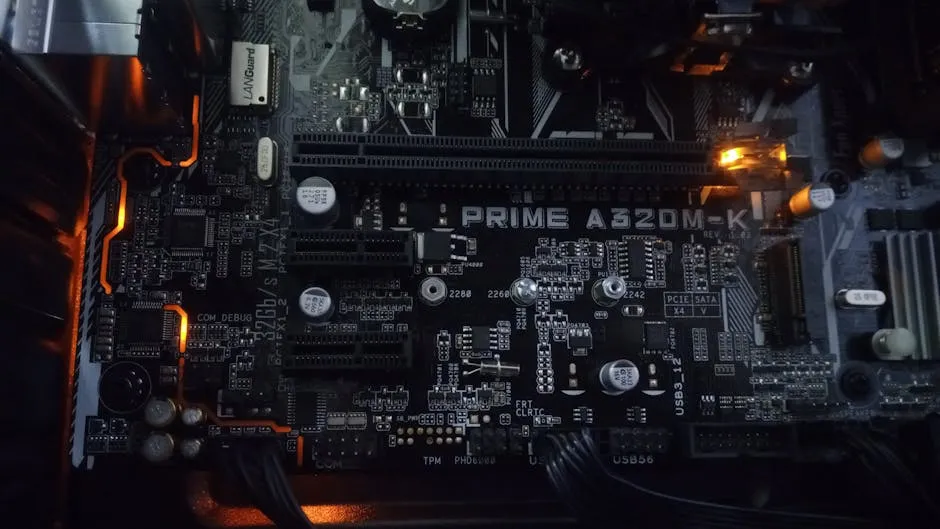
Causes of Pins and Needles
Common Causes
Pressure-Related Pins and Needles
Ever sat cross-legged for too long? Or perhaps you’ve woken up to find your arm resembling a limp noodle? This is classic pressure-related paresthesia. When you apply prolonged pressure on nerves, they can momentarily lose the ability to send signals. This interruption creates that annoying tingling feeling we call “pins and needles.”
Picture this: you’re at a movie, sitting in that cozy position, and suddenly, your leg starts to tingle. That’s pressure doing its thing! When you shift positions or shake out that limb, blood flow returns. So, why does this happen? It’s all about blood flow and nerve function. Changing positions helps restore normal sensation, usually in just a few minutes.
You may also experience it from sleeping on your arm or wearing tight clothing. It’s like your body’s way of reminding you that it prefers a little wiggle room. So next time you feel that prickling sensation, just move around and let the blood flow!
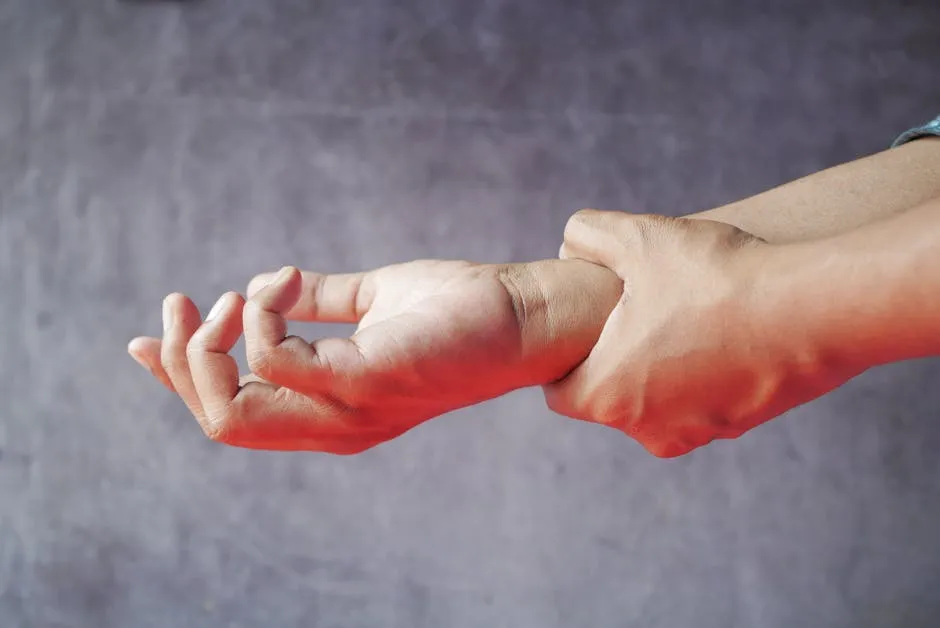
Pinched Nerves
Now let’s talk about pinched nerves. These little troublemakers can create a whole world of discomfort. Conditions like carpal tunnel syndrome and sciatica can lead to persistent pins and needles sensations. Carpal tunnel syndrome occurs when the median nerve in your wrist gets squeezed. This can happen from repetitive motions or even just poor wrist positioning.
You might notice tingling in your fingers or a feeling of weakness in your grip. Sound familiar? That’s your body trying to signal that something isn’t quite right. Sciatica, on the other hand, is a bit more dramatic. When the sciatic nerve gets pinched, it can send shooting pains down your leg, often accompanied by that pesky tingling sensation.
In these cases, simply changing your position might not cut it. If you’re experiencing chronic pins and needles, it’s a good idea to consult a healthcare professional. They can help identify the root cause and suggest solutions to relieve the pressure on those nerves.
Also, if you’re working long hours at a desk, consider using a Adjustable Laptop Stand. This can help improve your posture and reduce strain on your wrists and back, ultimately helping to keep those irritating pins and needles at bay!

Systemic Conditions
Diabetes and Peripheral Neuropathy
Diabetes can be a sneaky culprit behind persistent pins and needles. High blood sugar levels can damage nerves over time, leading to a condition known as peripheral neuropathy. Imagine trying to walk on a flat tire—that’s how your nerves feel when they’re damaged!
Symptoms of diabetic neuropathy can vary but often include tingling, numbness, and even pain in the hands and feet. Managing diabetes effectively through diet, exercise, and medication can help slow nerve damage. Regular check-ups with healthcare providers can also catch any issues before they escalate.
It’s crucial to pay attention to these symptoms. After all, if you can’t feel your feet properly, you might not notice if you’ve stubbed a toe or stepped on something sharp.
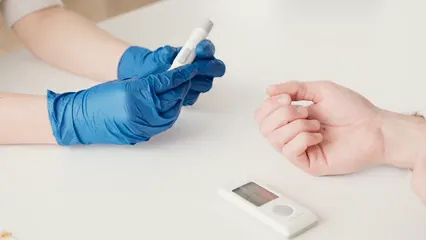
Multiple Sclerosis
Multiple sclerosis (MS) is another condition that can lead to those unwanted tingling sensations. MS disrupts the flow of information between the brain and the body. As the immune system attacks the protective covering of nerves, symptoms like tingling, numbness, and even weakness can arise.
The tingling might feel like it’s crawling across your skin or settling in one area, and it can vary in intensity. If you’re experiencing these symptoms alongside other changes, such as impaired coordination or vision issues, it’s time to reach out to a healthcare professional.
Other Conditions
Let’s not forget other potential culprits! Conditions like stroke and hyperventilation can also lead to pins and needles sensations. For instance, during a panic attack, rapid breathing can cause tingling in the hands and feet. Vitamin deficiencies, particularly B12 and B6, can impair nerve function too.
Speaking of vitamin B12, consider adding Vitamin B12 Supplements to your regimen. They can be a helpful addition to support nerve health and keep those tingles in check!
Autoimmune diseases like lupus or hypothyroidism may also contribute. Each of these conditions can lead to nerve damage or impaired blood flow, resulting in that familiar tingling sensation.
In summary, while temporary pins and needles can often be linked to pressure on nerves, persistent sensations may indicate underlying health issues. Being vigilant about these symptoms can help you stay on top of your health and seek appropriate care when needed!

When to Seek Medical Advice
Red Flags for Concern
Not all tingling sensations are created equal! While occasional pins and needles can be harmless, some symptoms warrant immediate medical attention. If you experience sudden onset of tingling, particularly if it affects one side of your body, it’s time to raise the alarm. This could signal a stroke. Other red flags include accompanying weakness, difficulty speaking, or loss of coordination. If you notice these signs, call for help faster than you can say “pins and needles!”
Tingling that comes with vision problems is another reason to consult a healthcare professional promptly. Blurred or double vision alongside those prickles? Consider it a neon sign pointing to potential serious issues. Additionally, if you have a history of diabetes, and your tingling is persistent or worsening, don’t brush it off. It could indicate diabetic neuropathy—a condition that necessitates management.
So, when should you consult a healthcare professional? If your symptoms are persistent, recurrent, or worsening, it’s wise to seek advice. Not all sensations can be brushed off as “just a nuisance.” In fact, chronic pins and needles may point to nerve damage or other underlying health conditions. Being proactive about your health is always a good idea.

Diagnostic Approach
When you visit your doctor about those pesky pins and needles, expect a thorough diagnostic approach. They may begin with a detailed medical history and a physical examination. Your doc will want to know when the symptoms started, how often they occur, and what you’ve been up to when they happen.
From there, diagnostic tests might include blood tests to check for vitamin deficiencies or diabetes. An MRI could be ordered to rule out structural issues, like herniated discs or tumors. If your doctor suspects nerve damage, they might recommend an electromyography (EMG) test to evaluate how well your nerves are functioning.
Each test plays a critical role in pinpointing the underlying cause of your tingling sensations. No stone is left unturned when it comes to understanding what’s going on. Remember, the sooner you seek medical advice, the sooner you can get on the path to relief and recovery.
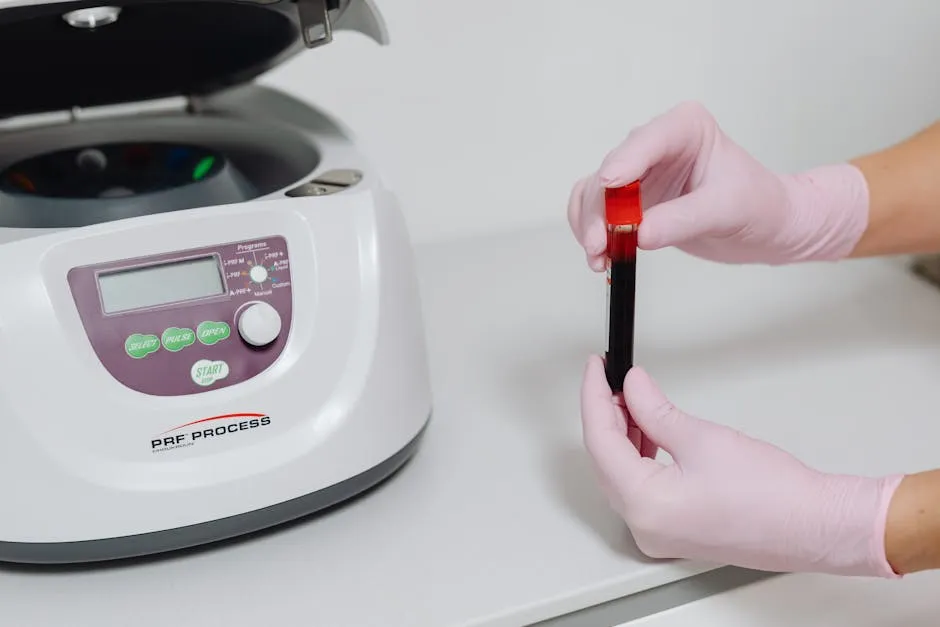
Treatment Options for Pins and Needles
General Treatment Strategies
Treating pins and needles sensations isn’t a one-size-fits-all scenario. The approach varies based on the underlying cause. For pressure-related paresthesia, simply shifting your position can work wonders. If your tingling results from a pinched nerve, physical therapy might be on the table.
Lifestyle changes can also play a crucial role. Maintaining a healthy weight, practicing good posture, and taking regular breaks from repetitive activities can help minimize your symptoms. Furthermore, managing chronic conditions like diabetes is essential. Proper blood sugar control can prevent nerve damage and reduce those annoying sensations.
Medications may be necessary for persistent cases. For example, pain relievers or anti-inflammatory drugs can alleviate discomfort. If your symptoms stem from neuropathy, your doctor might prescribe medications specifically designed to target nerve pain.

Specific Treatments for Common Conditions
Now let’s zoom in on some common conditions that lead to those pesky pins and needles. For carpal tunnel syndrome, treatment often includes wrist splints, particularly during sleep. Splinting helps relieve pressure on the median nerve. Anti-inflammatory medications may also provide relief and reduce swelling.
If diabetes is the culprit, managing blood sugar levels is vital. This can involve dietary changes, medications, or insulin therapy. Regular check-ups with your healthcare provider are essential to monitor your condition and prevent complications.
Lastly, if vitamin deficiencies are responsible, supplementation can be a game changer. Vitamin B12 is particularly crucial for nerve health. Incorporating foods rich in B vitamins or taking supplements may help restore nerve function and reduce those annoying tingles.
Additionally, consider trying a Foam Roller to help relieve muscle tension and promote blood circulation, which can further assist in managing those tingling sensations.

In summary, the treatment for pins and needles is as unique as the individuals experiencing them. Understanding the underlying cause is key to effective relief and management.
Preventive Measures
Lifestyle Changes
Maintaining a healthy lifestyle can significantly impact nerve health and reduce the likelihood of experiencing those pesky pins and needles. First, let’s talk about posture. Sitting or standing with proper alignment is crucial. Slouching or hunching can compress nerves, leading to that annoying tingling feeling.
Frequent breaks are essential too! If you’re glued to your desk, make sure to stretch and move around every hour. Your body will thank you, and those nerves will appreciate the blood flow. Ergonomic tools like chairs and desk setups can also make a world of difference. Invest in a chair that supports your back and use a keyboard that keeps your wrists aligned.

Now, let’s chat diet! A balanced diet rich in vitamins, especially B12, is vital for maintaining nerve health. Foods like fish, eggs, and dairy can help keep your nerves happy. Don’t forget about hydration, too! Dehydration can lead to nerve compression, so keep that Water Bottle with Time Marker handy.
Managing Underlying Conditions
Managing chronic conditions is another key factor in preventing pins and needles sensations. For instance, if you have diabetes, keeping your blood sugar levels stable is paramount. High blood sugar can damage nerves over time, leading to peripheral neuropathy and those annoying tingling sensations. Regular check-ups can help you stay on track.
If you’re diagnosed with conditions like carpal tunnel syndrome or sciatica, following your healthcare provider’s recommendations is essential. Physical therapy, exercises, and even splints can help alleviate pressure on nerves.
In essence, taking proactive steps in your lifestyle and managing any underlying health conditions can significantly reduce the frequency of pins and needles. Your body will reward you with better nerve health and a tingling-free existence.

Conclusion
In conclusion, while the sensation of pins and needles is often harmless and temporary, persistent or recurrent episodes can signal an underlying health issue. Understanding the connection between these sensations and various health conditions can empower you to take proactive steps towards better health. If you experience frequent or concerning symptoms, seeking medical advice can lead to effective treatment and management strategies. Taking charge of your lifestyle and health can help you maintain comfort and well-being while keeping those pesky sensations at bay.
FAQs
What does it mean if I experience pins and needles frequently?
Frequent pins and needles can indicate nerve irritation or damage. Conditions like carpal tunnel syndrome or diabetes often cause this sensation. If it happens often, consulting a healthcare professional is essential. They can evaluate your symptoms and suggest appropriate tests. Ignoring persistent sensations might lead to complications. So, don’t hesitate to seek help if it becomes a regular annoyance!
Can pins and needles be a sign of a serious condition?
Absolutely! While occasional tingling is usually harmless, persistent pins and needles could signal something more serious. If you experience sudden numbness, especially on one side of your body, it may indicate a stroke. Other concerning signs include weakness, vision changes, or severe headaches. If you notice these symptoms, seek medical attention immediately. Better safe than sorry, right?
Are there any home remedies for immediate relief?
Yes! If you experience temporary pins and needles, try these simple methods for relief. First, gently shake or move the affected limb to restore blood flow. Loosening tight clothing can also help. If sitting or lying awkwardly, change your position or take a walk. These quick fixes can ease that annoying sensation, making you feel more comfortable in no time!
How can I differentiate between transient and chronic paresthesia?
Transient paresthesia is short-lived, often lasting just a few minutes. It typically occurs due to pressure on nerves from awkward positioning. Chronic paresthesia, on the other hand, lasts longer and may indicate underlying health issues. If the tingling persists for days or is accompanied by other symptoms, it’s time to consult a healthcare professional. Understanding the difference can help you address any potential problems effectively.
Please let us know what you think about our content by leaving a comment down below!
Thank you for reading till here 🙂
If you’re curious about the sensations of “pins and needles,” you can explore more about it here.
All images from Pexels




